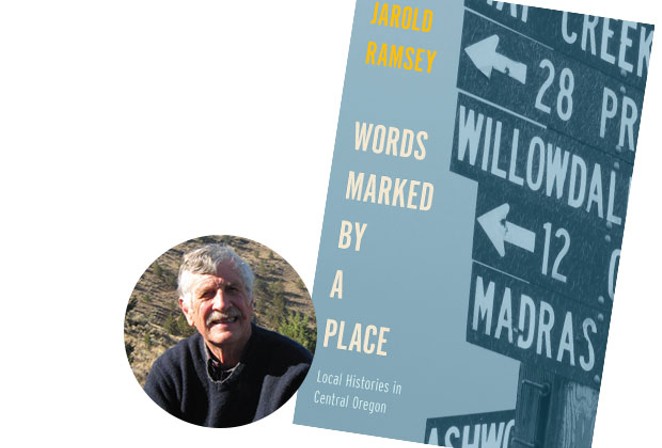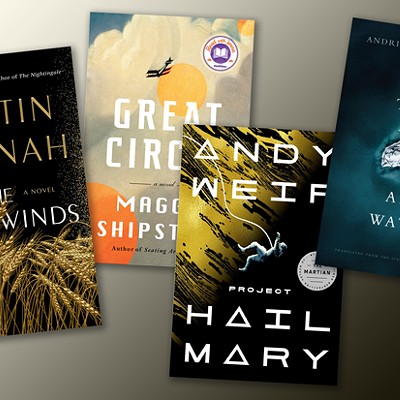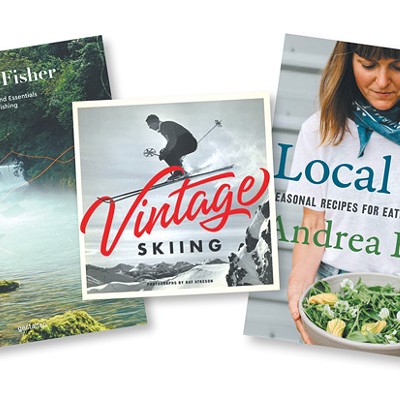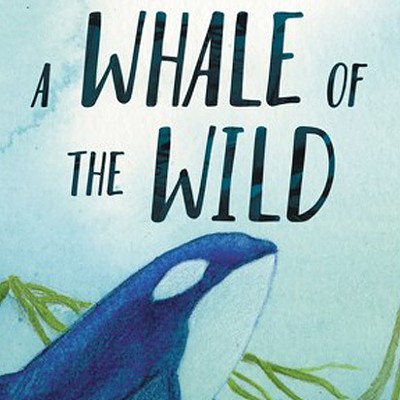
Jarold Ramsey is already a well-known figure around these parts, having grown up on his family's Central Oregon ranch before becoming an award-winning essayist, author, poet, playwright and authority on American Indian literature. Ramsey, who lives in Madras, is also professor emeritus of English at the University of Rochester and earned the Charles Erskine Scott Wood Distinguished Writer Award for lifetime achievement from Literary Arts in 2017.
Ramsey's latest book, "Words Marked by a Place: Local Histories in Central Oregon," was published by Oregon State University Press this year. In this interview, Ramsey discusses the book, which covers the human and natural history of Central Oregon.
Source Weekly: How did your family ties influence your book?
Jarold Ramsey: Both sides of my family—my dad's side and my mother's side—were pioneers here in Central Oregon. Namely as homesteaders, you know, they came in with the promise of free land... [My dad's family] had been dry farmers in Missouri so they had a big family and settled in and took a lot of land and managed to stick it out—which was a matter of real survival skills in the '20s and '30s, because it was a drought, economic depression, and so on. But and this is where I grew up, and so that is sort of my connection to the material in that book.
SW: I noticed you had a variety of mediums in the book. Why not stick to traditional methods?
JR: I've been different things, I've been a poet, I've been a playwright, a writer—not so much fiction, but essays and all kinds of books, literary criticism. I wanted to illustrate to people who are interested in local history, the possibility of playing with it riskily. I think local history is a really active interest in Central Oregon. It delights me to see how strong and active the county historical societies are here, beginning with our own in Deschutes County. It's a wonderful example of people coming together and doing history in a variety of ways.
SW: You talked a lot in your forward about intertwining contextual history and specific events. How do those relate?
JR: In this book it's kind of embedded in the title, "Words Marked by A Place," and if you read the quotation from William Carlos Williams, where that comes from, it says the "local is the only thing that's universal." And you can debate that, but what he does in that remark is to connect the merely local to the universal. And it's true in some literal way, that what we know about the universal in anything—philosophically or historically—is pinned down by local details.
And you know, I think that's really true in the matter of history, because all history is local in some ways. I've often been struck at how academic historians often either just completely ignore local connections that they might follow up or are kind of contentious with local historians... and that's too bad. I think both sides lose out on that and so the new book, "Words Marked by A Place," considers how the local, regional, national, global dimensions of history can be connected.
SW: How do you account for small inconsistencies you come across in historical accounts?
JR: I know historians fiddle with this—they tear their hair out over it—especially when dealing with local details. I've always felt that somehow the truth resides more in the particular details than in the grand distraction. I'm not sure of what that makes me philosophically, but as a poet I know that's what I feel. I know the concrete, I want to grapple with the particular details even though they are very contradictory and messy. And I suppose maybe that's what I carry into history, too.
SW: What do you want readers to take away from this book?
JR: One of the things I hope this will do is maybe stir up even more interest in local history. We have a very rich and odd history here—a lot of newcomers who I think actually do want to know about it. And, even more than that, to encourage people to go into it. And as I say, when I want to encourage people to engage with local history, I want to represent in the book that there are any number of different ways to do that. You don't have to be an academic sitting in a study, opening and closing books.



















